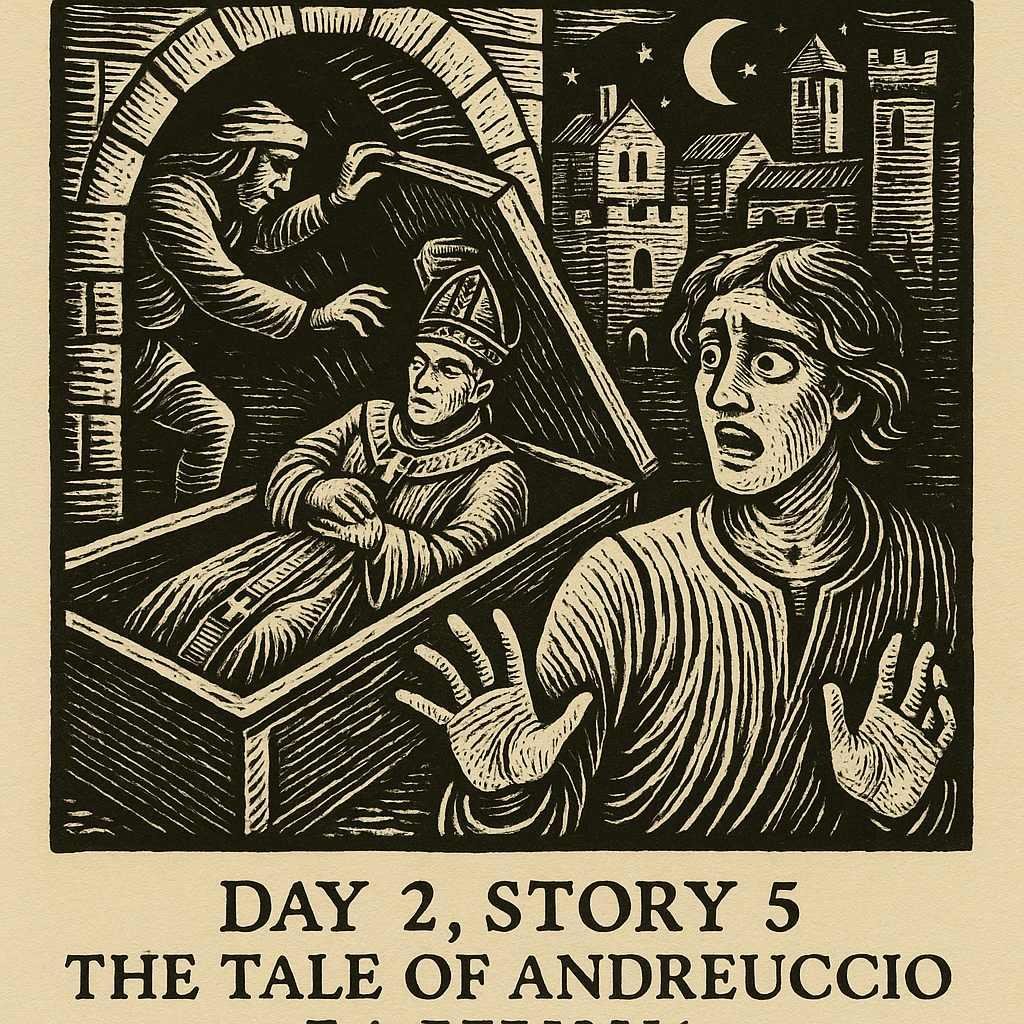The King's Justice and the Knight's Fortune: A Tale of Misjudged Loyalty and Royal Generosity

Introduction:
This story, told by Neifile in The Decameron, presents a powerful lesson in humility and justice. A knight, feeling underappreciated by the King of Spain, accuses his sovereign of ingratitude. But the king, with wisdom and grace, shows that the knight’s misfortunes are not born of royal neglect, but of ill luck. He then rewards the knight generously, proving his fairness and nobility. Blending elements from classical, medieval, and literary traditions, this tale not only reflects on the role of fortune in human affairs but also underscores the virtue of wise leadership.
Summary:
A knight serving the King of Spain believes he has been poorly rewarded for his loyal service. Feeling slighted, he expresses his dissatisfaction to the king. In response, the king uses a clever analogy comparing himself to a mule that carries what it's given to show that he cannot give what fortune has not provided. To further prove his point, the king presents the knight with a choice among several caskets, one of which holds a noble gift. The knight chooses wisely and is rewarded, realizing that his lack of reward had more to do with fate than with the king’s ingratitude. The story highlights the themes of fortune, justice, and the wisdom of rulers.
Analysis:
Neifile’s tale from The Decameron presents a compelling narrative that blends allegory, moral instruction, and literary intertextuality. The story centers on a knight who, feeling unjustly unrewarded for his loyal service, accuses the King of Spain of ingratitude. Through the use of symbolic elements most notably the metaphor of the king as a mule and the test involving the caskets the narrative explores the limitations of human agency in the face of fortune. These motifs, drawn from earlier works such as the Gesta Romanorum and the story of Barlaam and Josaphat, reinforce the tale’s moral dimension and connect it to a broader medieval literary tradition.
The motivations of the central characters serve to deepen the narrative’s moral complexity. The knight, driven by pride and a strong belief in the value of his service, seeks recognition and reward. His frustration leads him to misplace blame, assuming the king’s ingratitude rather than considering the role of chance. In contrast, the king responds not with anger, but with composed wisdom. His goal is not to punish but to enlighten, guiding the knight toward the realization that misfortune often arises from forces beyond one’s control. This distinction in character motivation underscores the narrative’s emphasis on humility, perspective, and the qualities of just leadership.
Thematically, the tale addresses justice, the nature of reward, and the influence of fortune concepts that retain significant relevance in contemporary discourse. It challenges the assumption that virtue is always met with recognition, and that those in power are inherently responsible for individual outcomes. By illustrating the complexity of merit and fate, the story encourages a more nuanced understanding of success and disappointment. Ultimately, Boccaccio’s tale offers a timeless reflection on leadership, accountability, and the unpredictability of life, making it a work of enduring philosophical and literary value.
Personal Response:
Reading this tale from The Decameron made me reflect on how often people, myself included, are quick to assign blame when things don’t go as expected. The knight’s frustration felt relatable—after all, we all want our hard work to be recognized and rewarded. His reaction reminded me of times when I’ve felt overlooked or underappreciated, and how easy it is to assume that others are at fault. What stood out most to me was the king’s calm and wise response. Instead of responding with anger or dismissiveness, he took the time to guide the knight toward a deeper understanding. That level of patience and insight is something I truly admire and aspire to develop in myself.
Conclusion:
In conclusion, Neifile’s tale from The Decameron offers a rich exploration of human emotion, justice, and the unpredictable nature of fortune. Through the contrasting motivations of the knight and the king, Boccaccio illustrates the importance of wisdom, humility, and perspective in both leadership and personal conduct. The story’s use of allegory and symbolic testing deepens its moral impact, inviting readers to reflect on the role of fate in their own lives. Ultimately, the tale remains relevant across time, reminding us that while recognition and reward are often desired, understanding and grace in the face of misfortune are far more enduring virtues.







